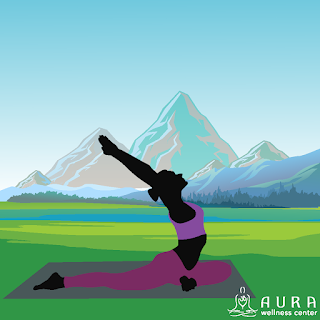Have you ever heard the phrase “issues in the tissues”? Have you seen this phenomenon play out in your yoga instruction work? Our bodies are present, and often actively engaged, as we go through various difficult times in life. As such, our bodies have ways of remembering – and even storing, in some ways – the effects that those times have on us. In yoga, we delve into various muscles, joints, fascia, and other tissues. This occurs through folding, bending, twisting, and more.
Through these actions we often access things that lay dormant in our bodies in everyday life tasks, and even in other physical activities such as running and cycling (as healthy as those things can be). The result is that yoga practice can unearth pent-up memories and emotions. Those are things that we – as leaders of practice when we teach – must, at some level, hold and healthfully channel. We must keep things safe and (relatively, at least) controlled, for all involved, when challenging emotions emerge.
I have personally seen this play out most significantly in private yoga instruction. In this format, students might feel more comfortable talking freely, and revealing their emotions in other ways, than they might in a class setting. For instance, one student I have has an emotionally taxing job as a special education teacher in a low-income high school, as well as underlying family-of-origin complications. Nearly every lesson, she cries at some point. These aren’t loud sobs with a river of tears flowing, but the heavy breath quality and misty eyes are there.
It happens most commonly when we work into hip-opening postures (such as Lizard and Pigeon). We’ve talked about the issues that might be there for her as a woman who’s never had children of her own. We’ve discussed the issues that might be there for women in general, the area as the site of childbirth (or lack thereof), sexuality, and a sense of freedom in one’s own skin (or lack thereof). As yoga instructors, I think that it’s important to be aware of the possibility of such issues surfacing when working in such postures (those that target that second Swadhistana Chakra) with women – not to say that men don’t also sometimes have “issues in the tissues” in that area as well.
Sometimes she apologizes to me for getting emotional, and I reaffirm that it’s nothing to feel sorry for. At another level she completely understands that releasing her “issues in the tissues” is completely natural, and has described to me her own process of becoming more comfortable with it. She told me that the first time she cried while practicing yoga, she was in a full class, and was “so embarrassed!”.
Nowadays, if she doesn’t apologize, we sometimes somehow find some humor in it (in an appropriate way of course, not laughing at what she’s going through but as a way to add lightness and further easing of tension to the situation). That can be productive way to handle emotional release in yoga practice. In the psychology and counseling fields, humor is sometimes known as a “mature” coping mechanism (versus an “immature” – or unhealthy – one, such as avoidance). Humor can lighten the mood, increase full breath, and help make channeling difficult emotions easier.
Please stay tuned, dear readers, for a following article in which I’ll discuss further examples of emotional release in yoga instruction, and suggest ways for us yoga instructors to keep everyone involved, feeling safe, and accepted, in those cases. When we can hold the space effectively in these cases, so to speak, we can offer our students something that many in this world vitally need – a way to release difficult things that their bodies have stored. That’s something that our culture unfortunately often stigmatizes. Thank you and Om Shanti!
© Copyright - Aura Wellness Center – Publications Division
See our testimonials to find out what our graduates have to say about our selection of online teacher certification courses.
Please feel free to share our posts with your friends, colleagues, and favorite social media networks.





No comments:
Post a Comment